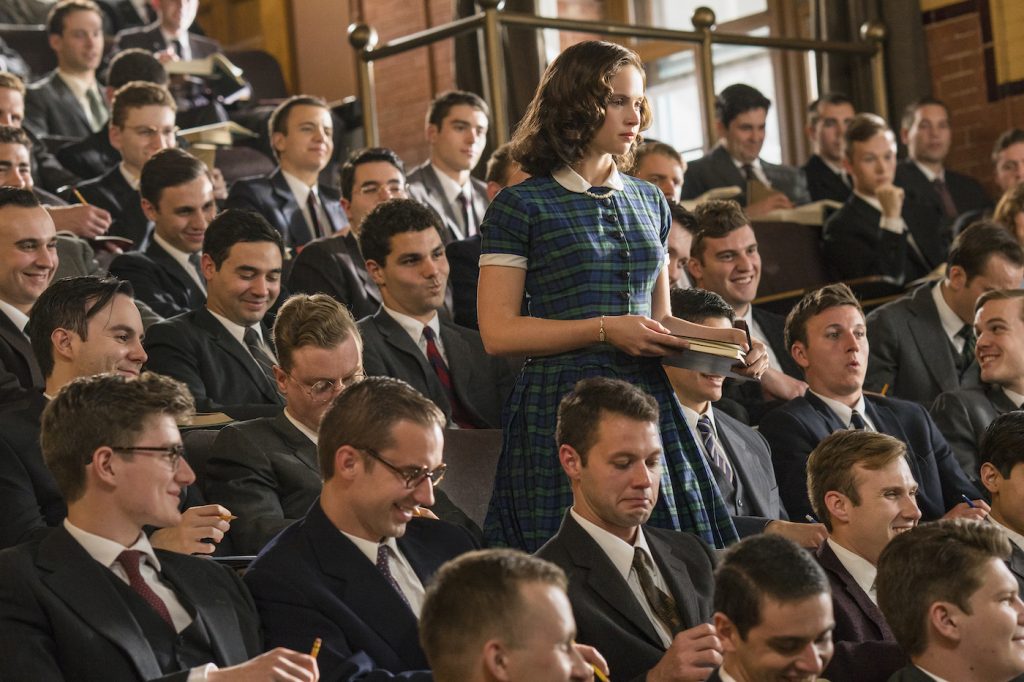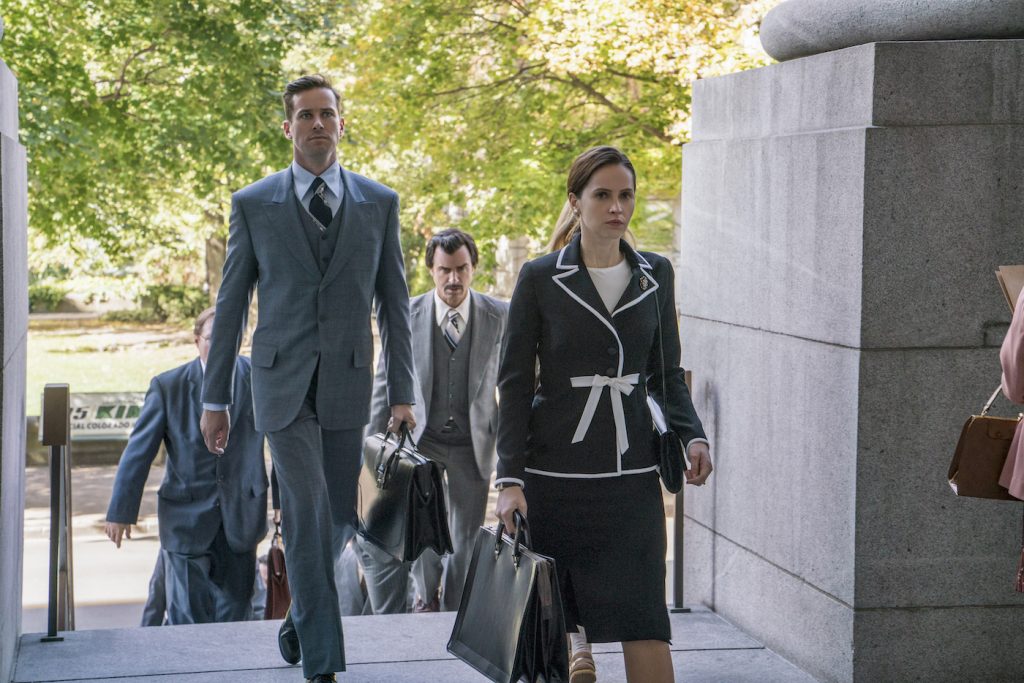How Ruth Ginsberg’s Nephew Wrote On the Basis of Sex
Before he experienced the memorial service epiphany that led to On the Basis of Sex, writer Daniel Stiepleman had knocked around for a few years, working in the Peace Corps, teaching high school English and producing TV commercials in Wisconsin. Then, he attended the 2010 funeral of his uncle Martin, the late husband of Supreme Court Justice Ruth Bader Ginsberg. “Martin’s friend gave a eulogy and mentioned in passing that discrimination on the basis of sex was the only case Ruth and Marty ever argued together,” Stiepleman recalls. “My first thought was ‘This story is a gift from the gods.’ And my second thought was ‘What the hell is wrong with you thinking about movie scripts at a funeral?'”
Overcoming his guilty conscience, Stiepleman set to work on a portrait of Ruth Bader Ginsberg as a young lawyer. The film, opening wide on Friday, January 11, begins at Harvard Law School circa 1956, where Ginsberg (Felicity Jones) first meets intimidating dean (Sam Waterston). On The Basis of Sex then jumps forward to 1970, when she teams with her husband (Arnie Hammer) to win a landmark case establishing that gender discrimination is unconstitutional.

The narrative came together in pieces for Stiepleman, who returned to his teaching gig at Chicago’s Columbia College after the funeral. But he couldn’t get the married-couple-fighting-for-justice premise out of his mind. “I sat on the idea for more than a year but scenes kept popping up in my head,” he says. “Finally I called up Aunt Ruth, pitched her On the Basis of Sex and asked if she’d help me. She said, ‘Fine, if that’s how you want to spend your time.'”
Stiepleman initially knew “absolutely nothing” about the law. To wrap his head around the facts of the legal matter, he stayed at Judge Ginsberg’s Washington D.C. apartment, delved into her family life with Martin over nightly dinners and spent his days combing through archives at the Library of Congress. There, he happened across a document that inspired the movie’s first act. “Aunt Ruth set me up with access to boxes from the sixties and seventies that had all her files,” He recalls, “I stumbled across a letter from a lawyer whom she’d sent early drafts of her legal brief. In a postscript, he wrote ‘For you to go up against your own professors from law school in court is very brave.’ I was like, ‘Wait, what?'”

As depicted in the film, Ginsberg’s adversaries in court are the very men from Harvard who had taught her constitutional law some 15 years earlier. “When I saw that letter I realized we had to open in the fifties to establish her relationships with these professors and show where Ruth came from as a student. Once we do that, the whole movie becomes about how the whole culture is changing because we’re seeing Ruth in these two completely different eras.”
In 2012, Stiepleman finished his first draft of the script and sent it to a former associate at Columbia College, who in turn connected him with Robert Cort (Mr. Holland’s Opus, Runaway Bride). The veteran producer championed On the Basis of Sex for six years before financing and distribution finally came together. “It was an interesting challenge to tell people in Hollywood ‘We’re making a period drama with a female lead about tax law, there’s a husband, he wears an apron, and there’s a teenage daughter but she never talks about boys or clothes,” Stiepleman says. “There was a lot of feedback along the lines of ‘I don’t really believe a guy like Martin Ginsburg could exist. The stakes should be that he threatens to divorce Ruth if she goes through with the case,’ stuff like that. It took a producer with a spine to say, ‘No, we’re going to wait until we find the right people to make the movie we want to make.'”
Boosted by an appearance on the 2004 “Black List” featuring Hollywood’s hottest unproduced screenplays, On the Basis of Sex finally got made with director Mimi Leder at the helm. After the film wrapped early last year, Stiepleman nervously showed a rough cut to Judge Ginsberg. “We went to a small theater in DC with Ruth and a few staffers. When the movie ended, Ruth stormed out of the theater and our hearts all sank. But then my cousin Jake said she just had to go to the bathroom.”
Judge Ginsberg’s verdict? “When we caught up with her, she loved Felicity’s portrayal of her and she loved Armie as Martin,” Stiepleman says. Judge Ginsberg also appreciated the activist theme embedded in On the Basis of Sex, according to her nephew. “Ruth feels people sometimes make the seventies seem all angry and depressed but in her experience, it was an incredibly optimistic time,” he says. “She and Marty felt the world was changing and they were at the forefront of the change.”
Featured image: Armie Hammer and Felicity Jones in On the Basis of Sex. Courtesy: Focus Features



